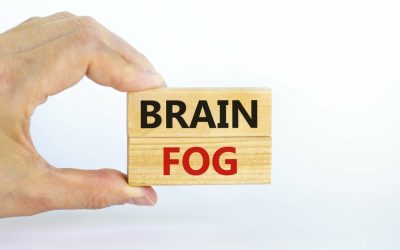Content
So they take on the burden of cleaning up your messes, lying for you, or working more to make ends meet. Pretending that nothing is wrong and hiding away all of their fears and resentments can take an enormous toll. Children are especially sensitive and can suffer long-lasting emotional trauma when a parent or caretaker is an alcoholic or heavy drinker. But even if you’re able to succeed at work or hold your marriage together, you can’t escape the effects that alcoholism and alcohol abuse have on your personal relationships.
- Lab work can include providing a stool sample to look for excess fats, which is a sign of malabsorption.
- You can offer support to someone with AUD who is in denial and take steps to ensure you’re not enabling their drinking, but you can’t make them get help.
The key aspect of the tolerance question used here might be the emphasis on the recent five-year period. It is possible that self-perceived tolerance might be strongest at younger ages when drinking is escalating but might not be as apparent as individuals maintain and decrease the maximum drinks with advancing age. Space constraints do not allow for an expanded examination of the phenomenon of changes in rates of endorsement of AUD criteria as individuals age, but that question will be revisited in a future paper. Table 1 for probands and Table 3 for offspring each first present data for the entire relevant sample and then separately for Group 1 denier and Group 2 non-denier participants. A large majority of two generations of SDPS participants whose interviews indicated a current AUD did not characterize themselves as problem drinkers.
Ask about their support needs
Table 2 presents results predicting AUD proband denier status using a backwards elimination logistic regression analysis that included variables that differed significantly across deniers and non-deniers in Table 1. Four variables contributed significantly to the analysis including three of the criteria predicted in Hypothesis 5 along with a SUD on illicit drugs other than cannabis. Half reported a biological father with DSM-III alcoholism and half had no known alcoholic relative (American Psychiatric Association, 1980; Schuckit and Gold, 1988). However, many people with AUD use denial as a self-defense mechanism.
- However, if you consume alcohol to cope with difficulties or to avoid feeling bad, you’re in potentially dangerous territory.
- Don’t worry; we’ll also provide practical strategies for overcoming such denials—supportive steps you can take as someone wrestling with your own struggles or trying to assist a loved one seeking redemption.
- A more appropriate way to screen patients for alcohol impairment would be to use a standardized and more detailed review of patterns of drinking and alcohol-related problems such as the ten item AUDIT.
Using alcohol in situations where it’s physically dangerous, such as drinking and driving, operating machinery while intoxicated, or mixing alcohol with prescription medication against doctor’s orders. Alcohol use disorder can include periods of being drunk (alcohol intoxication) and symptoms of withdrawal. American Addiction Centers (AAC) is committed to delivering original, truthful, accurate, unbiased, and medically current information.
Patient Care Network
Comparisons included demography, alcohol-related patterns and problems, drug use, as well as impulsivity and sensation seeking. Variables were first evaluated as univariate characteristics after which significant group differences were entered in logistic regression analyses. People may deny their alcoholism for different reasons—it’s not always about hiding it.
- Understanding denial is a first step toward helping your loved one with alcohol use disorder.
- Acknowledge their struggles but gently point out how alcohol is exacerbating their problems.
- Denial is a form of motivated belief or self-deception that detaches an individual from reality (Bortolotti, 2010).
- Unconditional love and encouragement will go a long way in helping your loved one find freedom from alcoholism but, ultimately, the desire to change has to come from within.
You may be called judgmental or nosy, or told to mind your own business. Anger and defensiveness suggest that your loved one has some awareness of a problem but is afraid to face it. These researchers argue that severe denial in the face of overwhelming evidence is consistent with cognitive impairment.
Addiction Treatment Programs
Having this conversation may feel daunting, but it’s an important step. Your loved one needs to be reminded that people care for them and want what’s best for them. Recent studies suggest that the same areas of the brain affected by addiction may be responsible for self-awareness. This means that individuals with alcohol use disorder might struggle to fully comprehend and confront the seriousness of their addiction.

Only by acknowledging there’s an issue can someone begin taking steps toward recovery. It can be seeking professional help, joining support groups like Al-Anon or Alcoholics Anonymous (AA), talking openly about concerns, or attending educational programs for those grappling with substance abuse alcoholism and denial disorders. Denial is an important defense and part of good mental health when it gives us time to adjust to distressing situations. Soldiers in Ukraine today need to deny the realities surrounding them in order not to be overwhelmed and to continue protecting their country and families.
Why Do People Deny That They Have a Drinking Problem?
Her own lyrics told us “I don’t ever want to drink again.” But she did drink again. Unfortunately, alcoholics too often turn the realistic need to enter rehab into a battle between themselves and anyone who is urging treatment. This leads to a prideful stance to maintain a distorted sense of power by not letting anyone “force” them into treatment. “You can’t make me” becomes a battle alcoholics can win, while ultimately losing the war.
